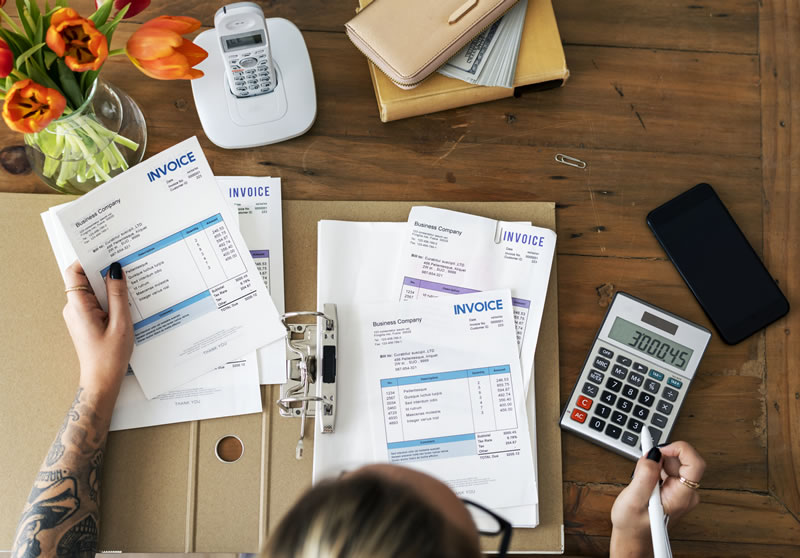
28 Apr I’ve set up a business….what do I need to do now and do I need an accountant?
Setting up a business whether a sole trader, partnership or limited company, comes with a lot of questions. ‘What do I need to submit?’ ‘When is it due?’ and ‘what do I include?’ will probably be on your list. The one at the very top of it will likely be ‘do I need an accountant to do it for me?
Setting up your business
Do you know if you should be set up as a sole trader, partnership or Limited Company? Do you understand the pro’s and cons of each? An accountant can help you before the business is even started, to help you get set up correctly and assist you with signing up with HM Revenue and customs.
What does an accountant do?
An accountant does many tasks for the taxpayer, and the tax return is one of the biggest – they file it for you on an annual basis. Other duties include:
- Year end accounts
- Bookkeeping
- Calculating the tax owed for both Individuals and Companies
- Find savings to reduce your tax liability
- VAT and CIS returns
- References for mortgages
- Payroll
- Help with day to day queries
Can you do everything yourself?
The simple answer to this is yes! You can submit a personal tax return through your online tax account.
For Limited Companies, Companies House will allow you to create and submit your abbreviated accounts for free, directly through their website. You will however need software to submit your full ixbrl accounts and company tax return to HMRC.
You’ll have heard of others undertaking the DIY method, but doing your taxes for the first time can be scary and you need to confident you know what you are doing. There are a number of things to consider when deciding if you need and accountant;
Would you consider your business and tax affairs to be simple?
I am aware that we can sit here and debate what simple really means for a long time. But if you are self-employed and your business consists of you raising one or two invoices a month and your expenses are largely regular direct debits, then I would say that your business is simple, and you may not need an accountant.
That said, if your clients pay you in advance for work, you begin to buy large pieces of equipment like a van or a car or you take out a loan or a finance agreement, then your business is no longer simple and you properly need to get an accountant. DIY mistakes in these areas can be quite costly for the tax payer. Is it really worth it?
Do you trade through a Limited Company?
Trading through a Limited Company can be complicated, especially if you don’t understand the differences between a sole trader and a Limited Company. Firstly, is a Limited company really the right thing for you?
The way directors are remunerated from a Limited company is complicated and requires planning and monitoring to avoid taking Dividends illegally, an accountant can help guide you in this.
Do you feel confident around your accounts?
Do you feel confident around finances? Do you understand bookkeeping? Can you read a set of accounts?
If the answer to any of these is no or the thought of doing your tax return or your accounts makes you nervous, then you may want to get an accountant.
If you engage the services of an accountant, you are not bound to them for life. Try to choose a nice, friendly accountant. Be honest with them that you would like to learn some of the process. Get them to check your bookkeeping and provide feedback. Check the documents that they send you.
There is no reason why you can’t get an accountant and once you begin to feel more confident, then look to preparing your own. An accountant could be seen as an investment.
Do you know what you can claim as a business expense?
Expenses such as the purchase of stock are obvious business expenses, however there are many expenses that are less obvious that an accountant can advise you on, such as using your home as an office, mileage, subsistence and personal capital items introduced into the business.
Are you planning on running a payroll or becoming VAT registered?
Payroll and VAT are two accountancy additions that can quickly become very complicated.
Most accountancy software’s have a payroll module, and you may feel confident to run the payroll for a couple of employees or directors, but do you know how to calculate sick or maternity pay and what is the most tax efficient level of salary for a director?
You may also feel confident with the VAT. Add up the VAT on your sales, deduct the VAT on your expenses. Pay the difference to HMRC. Job done. Again, accounting software can help with this but are you on the right VAT scheme? Do you know the rules on VAT on vehicles?
Are you organised?
There are lots of deadlines involved with running a business, quarterly vat, monthly or weekly payroll, annual accounts and tax returns. Are you good at keeping on top of deadlines and setting aside time to complete tasks, or would it be easier to engage an accountant to keep on top of and remind you about these key dates?
You don’t need an accountant
You don’t need to get an accountant but remember that you could run the risk of completing your tax return or accounts incorrectly. You could get a fine. Maybe under/overpay some tax. Choose the wrong VAT scheme and mess up your cash flow. So make sure you are confident with your decision.

